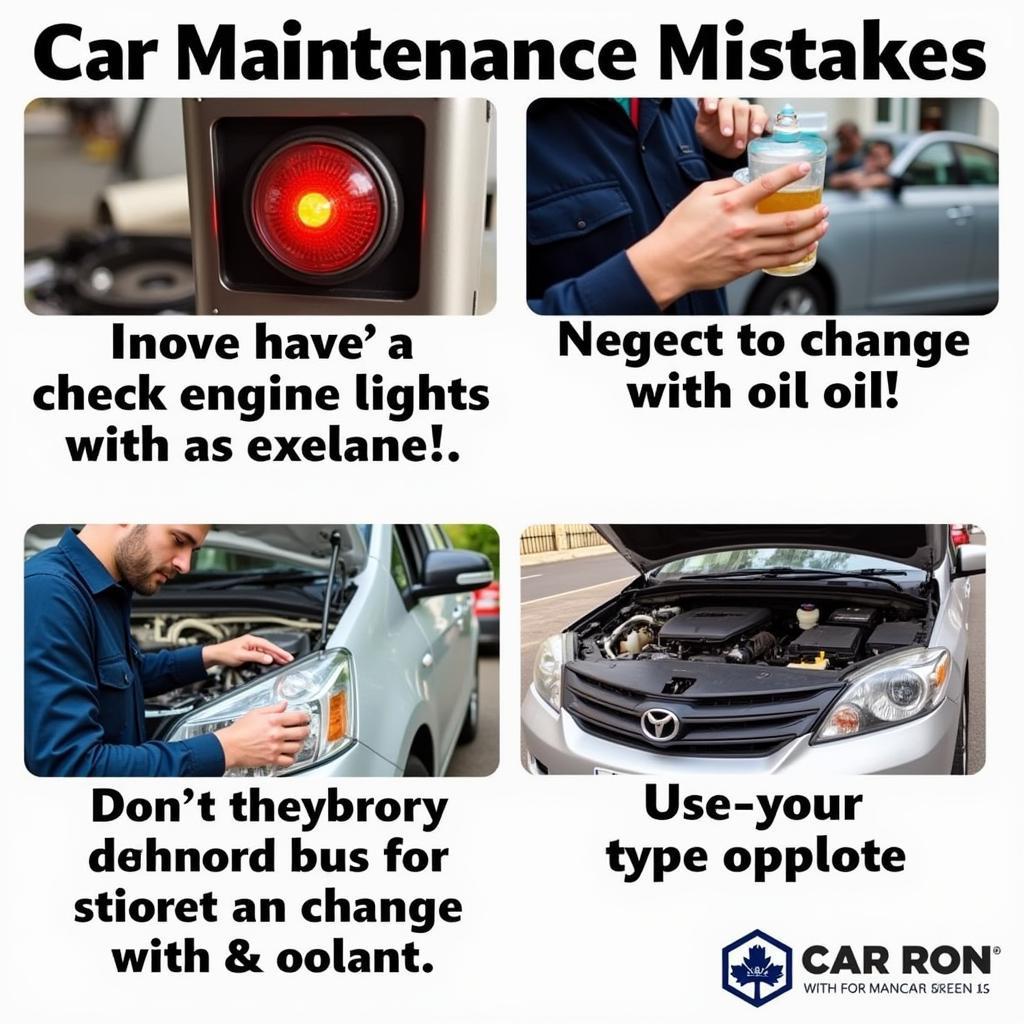Owning a car comes with a significant financial responsibility, and that includes regular maintenance and potential repairs. While many factors determine the total cost of car maintenance, understanding the key expenses can help you budget effectively and keep your vehicle running smoothly. This guide will delve into the various aspects of car maintenance costs, providing valuable insights for car owners, repair shop owners, and technicians alike.
Understanding Car Maintenance Costs
Fixed and Variable Costs
Car maintenance costs can be broadly categorized into fixed and variable expenses. Fixed costs are predictable and occur at regular intervals, such as oil changes and tire rotations. Variable costs, on the other hand, can be unpredictable and often arise from unexpected repairs or replacements.
Factors Influencing Maintenance Costs
Several factors significantly influence the cost of car maintenance. These include:
- Vehicle type: Different vehicle types have varying maintenance requirements. Luxury cars often demand more frequent servicing and expensive parts compared to standard vehicles.
- Age and mileage: Older vehicles tend to require more frequent repairs due to wear and tear. High-mileage vehicles also face increased maintenance costs.
- Driving habits: Aggressive driving habits can accelerate wear and tear, resulting in higher maintenance costs.
- Location: Geographical location can affect the cost of parts, labor, and even the frequency of certain maintenance tasks.
Common Maintenance Costs
Here’s a breakdown of some common car maintenance costs:
- Oil change: This is a fundamental maintenance task that needs to be performed regularly. The cost typically ranges from $30 to $100, depending on the type of oil used and the labor involved.
- Tire rotation: Regular tire rotation helps ensure even wear and extends tire life. Costs usually fall between $20 and $50, depending on the mechanic’s labor charges.
- Brake pads and rotors: Brake components wear down over time and need replacement. Costs vary depending on the vehicle type, but you can expect to spend between $100 and $500 for a brake pad and rotor replacement.
- Air filter: The air filter cleans the air entering the engine. Replacing a dirty air filter can improve performance and fuel efficiency. Costs typically range from $10 to $50.
- Spark plugs: Spark plugs ignite the fuel-air mixture in the engine. Replacing worn spark plugs can improve engine performance and fuel economy. Expect to spend between $50 and $200 for a spark plug replacement.
Budgeting for Car Maintenance
“Predicting car maintenance costs can be a challenge, but it’s essential to plan for unexpected expenses,” says John Smith, an experienced automotive mechanic with over 20 years of experience.
Here are some tips for budgeting car maintenance:
- Keep detailed records: Track all maintenance and repair expenses, including dates, costs, and descriptions. This will help you identify patterns and estimate future costs.
- Schedule regular maintenance: Following the manufacturer’s recommended service intervals is crucial. This will prevent minor issues from escalating into major repairs.
- Consider a maintenance plan: Some manufacturers offer maintenance plans that cover scheduled services at a fixed price. This can help you budget for these expenses upfront.
- Shop around for competitive prices: Obtain quotes from multiple repair shops before committing to a repair.
- Consider DIY maintenance: If you’re comfortable with basic car maintenance, you can save money by performing tasks like oil changes and air filter replacements yourself.
Common Maintenance Mistakes to Avoid
“Many car owners overlook routine maintenance, leading to costly repairs down the line,” notes Sarah Jones, a certified automotive technician and car maintenance expert.
Here are some common mistakes to avoid:
- Ignoring warning lights: Never ignore warning lights on your dashboard. These signals can indicate underlying issues that need attention.
- Delaying routine maintenance: Skipping recommended service intervals can lead to accelerated wear and tear, resulting in more expensive repairs.
- Using the wrong fluids: Using the incorrect fluids can damage your car’s engine and other components. Always refer to your owner’s manual for recommended fluid types.
- Neglecting regular inspections: Having your car inspected regularly by a qualified mechanic can help identify potential issues early, preventing more significant problems later.
 Common car maintenance mistakes.
Common car maintenance mistakes.
How to Find a Reliable Mechanic
Finding a trustworthy mechanic is crucial for maintaining your car’s health.
Here are some tips for finding a reliable mechanic:
- Seek recommendations: Ask friends, family, and neighbors for recommendations.
- Check online reviews: Look for reviews on websites like Yelp and Google to get insights into other customers’ experiences.
- Verify certifications and licenses: Ensure that the mechanic is certified and licensed.
- Ask about their experience: Inquire about the mechanic’s experience working on your specific vehicle type.
- Request a detailed quote: Obtain a detailed quote before authorizing any work.
Conclusion
Car maintenance can be a significant expense, but it’s an essential investment in the longevity and reliability of your vehicle. By understanding the factors that influence maintenance costs, budgeting for routine services, and finding a trustworthy mechanic, you can keep your car running smoothly for years to come.
For any questions or assistance regarding car maintenance, please contact Autotippro.
AutoTipPro:
+1 (641) 206-8880
500 N St Mary’s St, San Antonio, TX 78205, United States
Frequently Asked Questions (FAQ)
Q: How much does car maintenance cost per year?
A: The annual cost of car maintenance varies based on factors like vehicle type, age, mileage, and driving habits. However, you can expect to spend anywhere from $500 to $2,000 per year on average.
Q: When should I take my car in for maintenance?
A: Following your car’s owner’s manual for scheduled maintenance is essential. You should also bring your car in for maintenance if you notice any warning lights or unusual sounds.
Q: What are some common signs of car trouble?
A: Common signs of car trouble include unusual noises, warning lights, leaking fluids, decreased fuel efficiency, and problems starting the engine.
Q: Can I save money on car maintenance?
A: Yes, you can save money on car maintenance by following these tips:
- Schedule regular maintenance to prevent major issues.
- Shop around for competitive prices from different repair shops.
- Consider DIY maintenance for basic tasks.
- Keep detailed records of your maintenance costs.
Q: How often should I change my oil?
A: The recommended oil change interval varies depending on the vehicle and driving habits. However, most modern cars require oil changes every 5,000 to 7,500 miles.





Leave a Reply